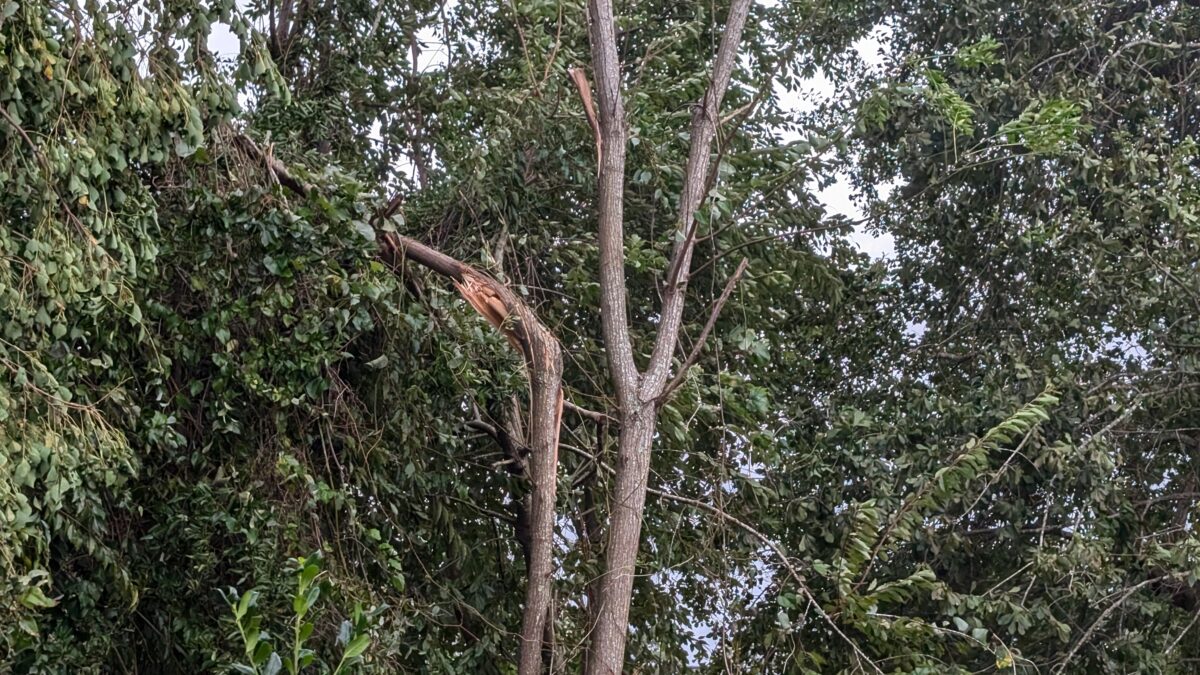We’ve been through two major weather events in the last few months in Savannah: Debby and now Helene.
Our home didn’t flood during Debbie, and didn’t lose power in either system since our subdivision has buried lines. We did have several hours of power cycling and had to turn major appliances off at the breaker but power never went completely out for more than 1/2 hour.
We also lost roof shingles and the emergency repair on them was a bite out of the wallet, but we could pay it. We have lost internet access, first because of the power loss, and after power was restored, because AT&T Fiber had a break in the line and is still waiting on a permit to dig to repair it.
We’re retired so we haven’t suffered loss of wages. And by having power, we haven’t had to throw anything away in our refrigerator.
We, individually, and generally throughout the Savannah area have not suffered the devastation that communities in Florida, south-central Georgia, and especially Tennessee and North Carolina have suffered. In particular, the floods from Helene have taken out entire towns in North Carolina, and isolated communities throughout the western part of the state. Sadly, over a hundred lives have been lost in several states, both because of Debby and now Helene.
Each community impacted by these storms has suffered as a consequence of them, though the amount of impact can be drastically different in each. But, big or small, impacts because of natural disasters leave everyone feeling vulnerable. And the solution to that vulnerability is normalcy.
After a disaster, each and every single one of us wants one thing: for life to be normal again. For some of us, the path to normalcy is short and relatively smooth: a restoration of power or network access; air conditioning so you can sleep at night in this heat; water flowing cleanly from our pipes; stores being open and roads cleared; a return to school or work.
For others, the path to normalcy is incredibly long, and harsh. There is no water and the people are desperately thirsty. There is no food, and the people are hungry. There is no shelter, and the sun beats down like a living Hell. You can’t find your beloved pet, and your child (or mother or closest friend) is not answering their phone.
All the landmarks of you life are gone and you feel you’ve lost who you are.
How does one start to rebuild an entire town? How does one begin to repair a home when there is no insurance? When you’re not even sure where your home once stood? How can you recover when you’ve lost someone you love? When you’ve lost everything?
When you compare the loss that people suffer, sometimes the scales are so imbalanced as to make such a comparison absurd. I have suffered so little, while others have suffered so much.
But every person impacted by a major storm has been through an experience that has frightened us and left us feeling vulnerable. And realizing how lucky many of us are, and how much worse the impact could have been, can leave us feeling even more vulnerable. And when you’re vulnerable, no matter how real that vulnerability may be, you only want one thing: for things to return to normal.
When reading people posts in social media about being frustrated about power being off or not having cellphone coverage, or the store isn’t open, and the school is closed, your first reaction might be to tell them how lucky they really are. After all, they have power. After all, they have a house. After all, their town is still standing.
After all, they’re still alive.
There’s not a single person on the shorter path to normal who isn’t aware of how lucky we are that we didn’t suffer through the worst that Helene could deliver. We see the photos and videos from North Carolina. We mourn the losses our neighbors have suffered.
But understand, deep down inside, we’re all experiencing the same thing: we just want things to return to normal. We have all been through a storm that has shown us how small we are, and how little of the world around us we really control. So instead of telling people to stop complaining because others have it worse, perhaps just say, “I hope your life returns to normal.”
Because that’s what we all want: for life to return to normal. For everyone.

